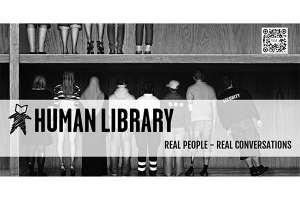
Unjudge Someone The Human Library, a collaboration between the Mudd Center for Ethics and Leyburn Library, brought the W&L community together in conversation.
“It is especially rare—in a time when intentional conversations, particularly with people whom we have not yet met, become rarer each day—to listen wholeheartedly to others’ stories and respond to them with all of your heart’s compassion and mind’s questions.”
~ Katie Yurechko ’24
Visitors to Leyburn Library on the evening of Jan. 24 may have noticed a buzz of activity in the Harte Center for Teaching and Learning. The space served as the backdrop for a new programmatic partnership between the University Library and W&L’s Mudd Center for Ethics called the Human Library.
The Human Library aims to challenge stereotypes, prejudices and discrimination by fostering direct, open and honest conversations between people—volunteer who agree to share their stories and volunteer Readers who are invited into a dialogue with the Book. Human Books share their personal stories and experiences, known as the Book’s Title, and Readers are invited to ask questions to further their understanding of the human behind the label and challenge their preconceived notions.
Human Librarians, members of an organizing committee that included staff and faculty from the Mudd Center, the University Library, Human Resources and Alumni Engagement, wore black-and-white shirts bearing the phrase “unjudge someone” and milled around on the first floor of Leyburn Library outside the Harte Center as the event began to answer questions and greet event participants as they arrived. Readers filtered in and took their seats in the Harte Center, while Books waited in Northen Auditorium to be called into their first of three group sessions. The event was divided into three sessions, allowing participants to interact with a variety of books represented in the room.
“Everybody has a story,” said Karla Murdock, director of the Mudd Center for Ethics and Jo M. and James M. Ballengee Professor of Cognitive Behavioral Science. “The Human Library is designed to help us find connection within stories that aren’t always told or understood. It protects space for us to be genuinely curious about another person’s experience, to talk about things that can otherwise feel off limits and to notice a mismatch between our assumptions and their reality. Hearing another person’s story in full color may be the best vehicle for learning to sense and question the automatic judgments we make.”
The Human Library project was created by Ronni Abergel, a Danish social worker, activist and youth advocate. Abergel founded the Human Library in Copenhagen, Denmark, in 2000 with the core mission of addressing prejudice. Abergel, drawing on his experiences in youth work and social activism, wanted to create a platform that would facilitate direct, personal interactions between individuals who may hold biases or stereotypes and those who have experienced discrimination. W&L’s Human Librarians worked closely with the Human Library project’s offices in Denmark for over a year in advance of bringing the event to campus.
Applications for members of the campus community to volunteer as Human Books opened Oct. 1, 2023, and included an interview process with the committee. Human Books often belong to groups that face stereotypes or prejudices, such as those related to race, religion, gender, sexual orientation, disability or other aspects of their identity, and Book Titles typically reflect a concise label a Human Book has chosen to represent the part of their personal story they will tell at the reading. People interested in learning and engaging in dialogue attend the event to “borrow” a Human Book for a set period. During this time, they have a conversation with the Human Book, asking questions and gaining insights into the Book’s experiences. Human Librarians oversee the entire process, ensuring a respectful and positive environment. They also help match Readers with Human Books based on their interests or the topics they want to explore.
Cole Gershkovich participated as a Human Book, titled “OCD and Depression.” Gershkovich wanted to be a Human Book to help people understand the nuances of his experiences with OCD and depression operating in tandem.
“My hope is that this knowledge would inspire Readers to consider ways to promote inclusivity and understanding regarding people living with similar experiences,” Gershkovich said. “I was also excited to be able to connect and feel seen without the filter of stigma and social expectations. I would love to see the conversations we had through the Human Library keep resulting in what I have already experienced happening: people reaching out and expressing interest in continued conversations that make everyone involved feel opened up and less afraid for the aspects of themselves usually kept in the dark to be seen and appreciated by others.”
Over the years, the Human Library concept has gained popularity and expanded to numerous countries worldwide through events organized by local libraries and community organizations.
“Libraries have existed for centuries as community spaces where people can read and learn from the printed word. We were excited to bring the Human Library to W&L, and to host it in Leyburn, as a way to connect living Books and interested Readers in a familiar and nonjudgmental space,” said K.T. Vaughan, Hal F. and Barbra Buckner Higginbotham University Librarian. Murdock said that a university library setting is an ideal fit for the event, particularly within the context of the Mudd Center’s mission to foster multidisciplinary and collaborative opportunities for reflecting on important ethical issues in public and professional life.
Kelly Fujiwara found the experience of sharing her story as a Human Book to be authentic, compassionate and “exhausting in a good way,” adding that she felt a sense of hope and positivity after the evening’s conversations. Fujiwara, who serves as the special events coordinator for Lee House, shared her journey as a cancer survivor, an experience that she said had opened her up to listening to others more intentionally and applying more empathy to her daily life.
“I was diagnosed with cancer at 24 and have lived with that ever since,” said Fujiwara, “and I met so many people through that experience from all walks of life who were willing to share their stories and their pain with me.” Fujiwara said she was glad to be able to share the perspective shift she received from her cancer journey with attendees at the event.
For Reader Katie Yurechko ’24, the event was an opportunity to understand the individuals behind the titles represented in the room.
“It is especially rare—in a time when intentional conversations, particularly with people whom we have not yet met, become rarer each day—to listen wholeheartedly to others’ stories and respond to them with all of your heart’s compassion and mind’s questions,” Yurechko said.
Murdock said gathering feedback from both Readers and Books themselves is crucial. Human Library committee member Kristy Crickenberger, assistant director of training and development for Washington and Lee’s Office of Human Resources, said the goal of the event is to help Readers acknowledge that it is a natural human trait to make assumptions and that she hoped that readers left the event with increased compassion when interacting with new people.
“The hope on the grander scale is that this will have a ripple effect and that every interaction that the Reader has thereafter will be comprised of less judgment, less assumption and more curiosity than judgment,” Crickenberger said.
Since its inception, the Human Library has grown into a global movement, with events organized in numerous countries, highlighting its effectiveness in fostering meaningful connections and breaking down barriers. Murdock and Vaughan hope that W&L can continue to host the event annually, a sentiment echoed by the evening’s attendees.
“The Human Library event creates a unique pocket within our fast-paced world for us to practice the all-too-valuable skills of interpersonal communication and nonjudgmental introspection,” said Yurechko. “The event challenges you to confront your preconceptions and/or misconceptions about others’ lived experiences while reflecting on how you engage across differences to learn about lives other than your own.”
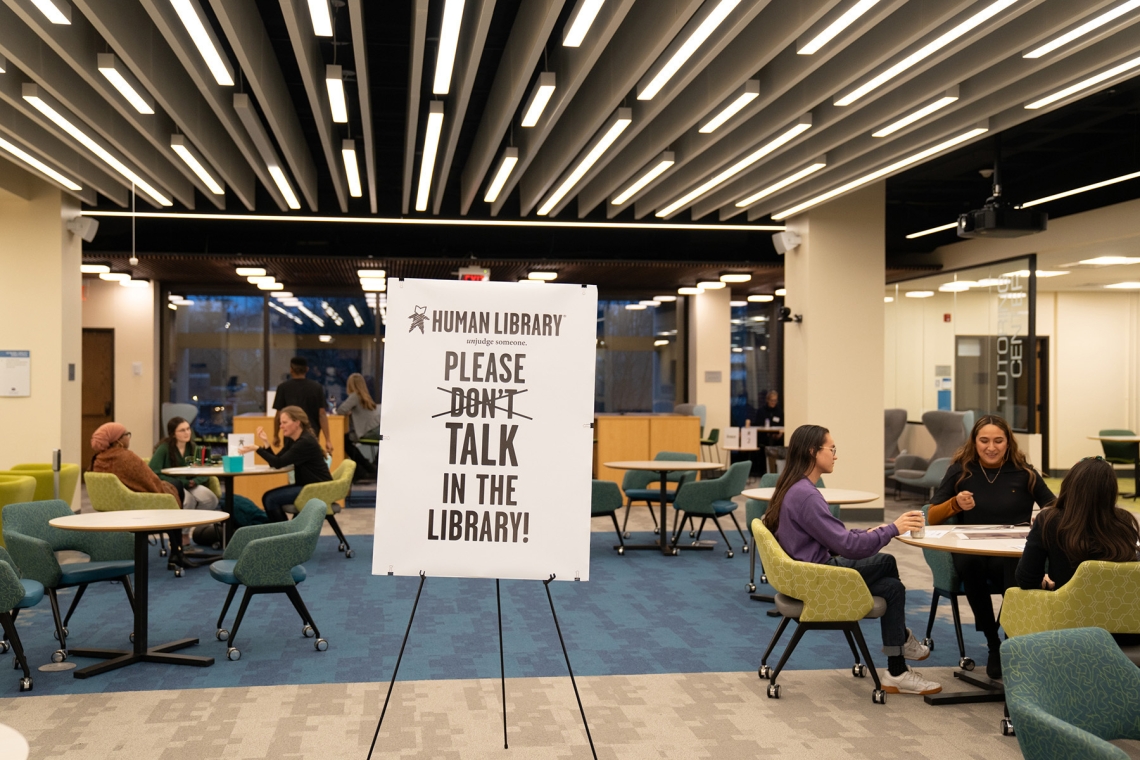 The Human Library in the Harte Center for Teaching and Learning
The Human Library in the Harte Center for Teaching and Learning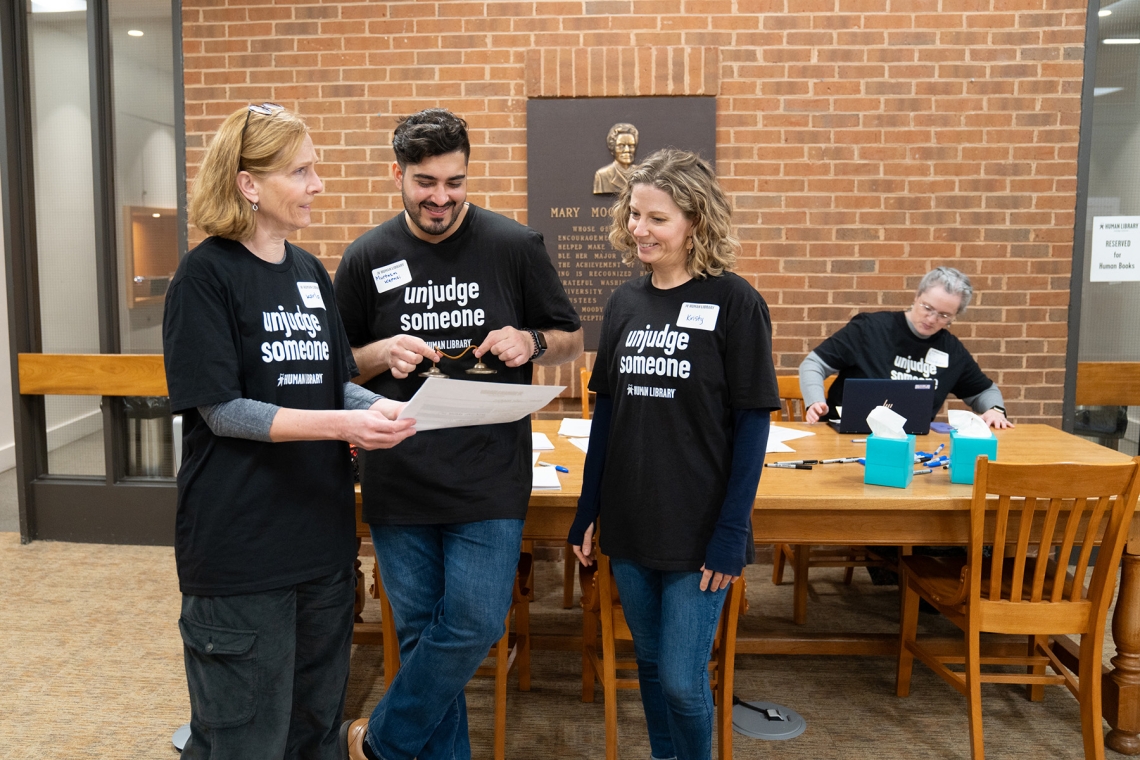 Human Librarians, from l-r: Karla Murdock, director of the Mudd Center for Ethics and Jo M. and James M. Ballengee Professor of Cognitive Behavioral Science; Murtaza Kapasi, assistant director of alumni affinity programs; Kristy Crickenberger, assistant director of training and development; and K.T. Vaughn, Hal F. and Barbra Buckner Higginbotham University Librarian
Human Librarians, from l-r: Karla Murdock, director of the Mudd Center for Ethics and Jo M. and James M. Ballengee Professor of Cognitive Behavioral Science; Murtaza Kapasi, assistant director of alumni affinity programs; Kristy Crickenberger, assistant director of training and development; and K.T. Vaughn, Hal F. and Barbra Buckner Higginbotham University Librarian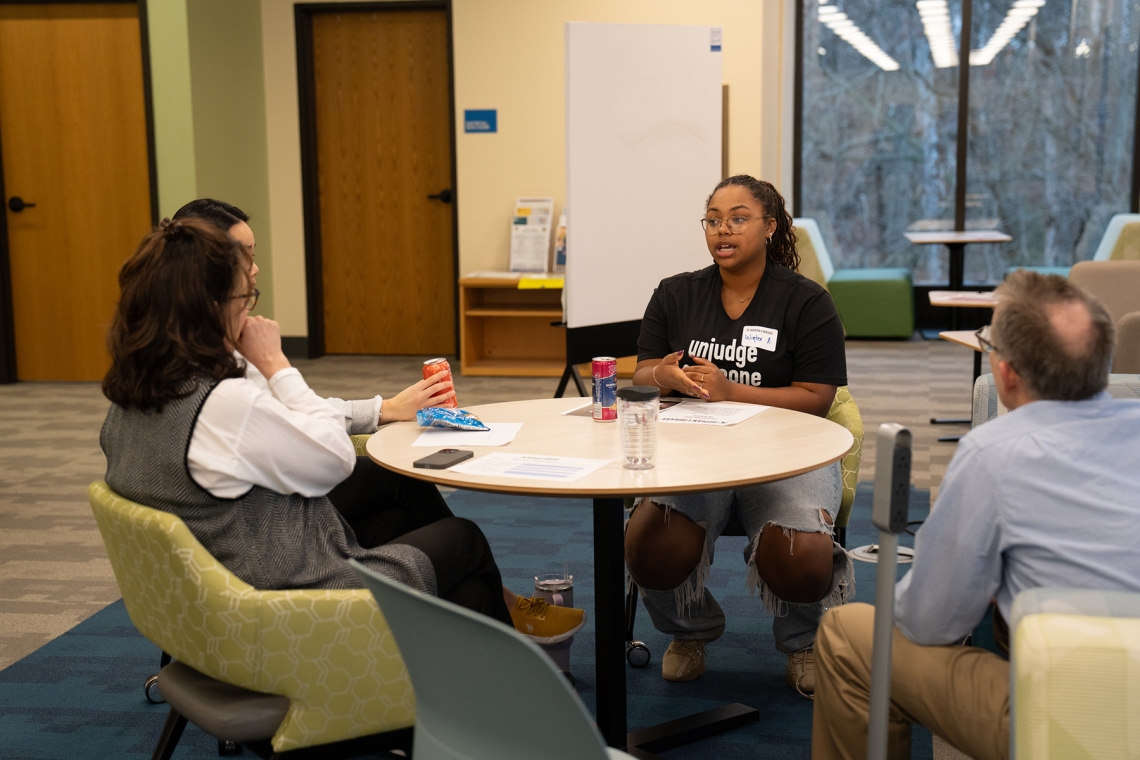 The committee hopes to bring the Human Library to W&L’s campus on a regular basis in the future.
The committee hopes to bring the Human Library to W&L’s campus on a regular basis in the future.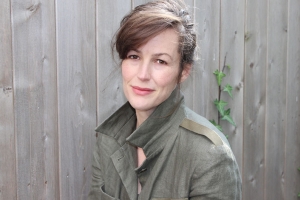
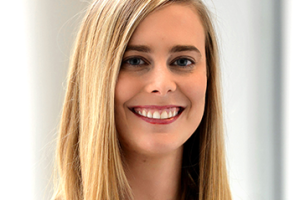

You must be logged in to post a comment.